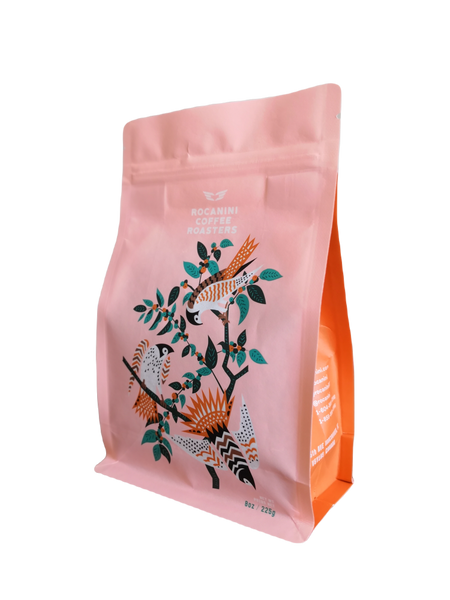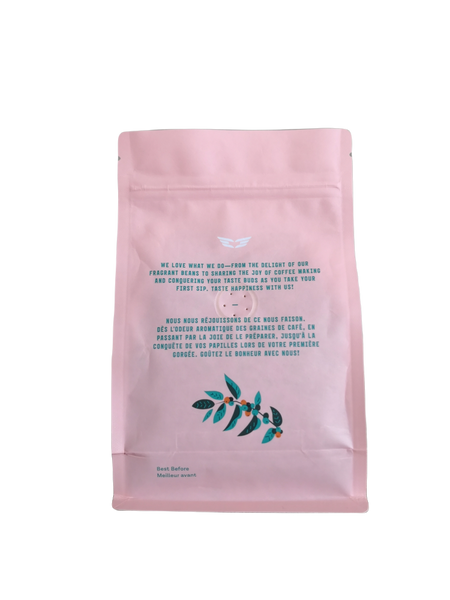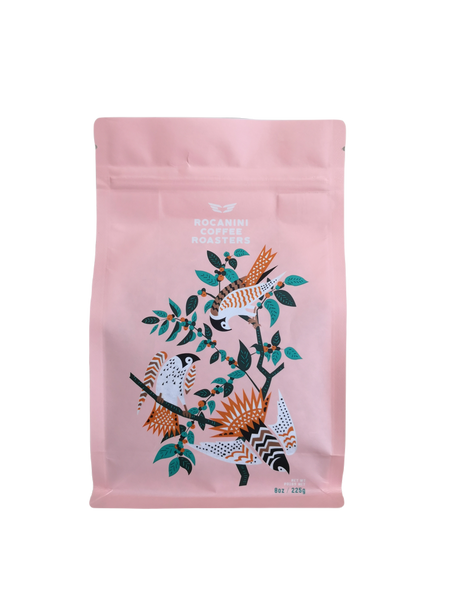


Yemen Mocha Haraaz Bani Ahlas Taha Hamood
Notes: Violets, mango, toffee, wild strawberry, walnut
The production process for Yemen Coffee beans has stayed the same for over 500 years. Small family farms plant on terraced fields carved into the Yemen landscape. The coffee plants are raised in the old way, without any use of chemicals. Once the fruit, referred to as “cherries” are ripe, they are hand-picked. The beans are not removed from the fruit, but dry-processed together. The fruit goes through a special drying period in caverns, and in some cases, on rooftops.
Once the fruit is dried, it’s easy to separate the beans from the husks, which are discarded. This leaves a very irregular and rough seed, which is the hallmark of Yemen coffee beans. The millstones that grind the beans are mostly turned by donkeys or camels. Even when grinding is powered by small gasoline engines, progress is slow with small output batches. Only the more aged and richly flavored beans are exported since they fetch a higher price. The territory in which this ancient coffee variety is cultivated is in a high altitude and drought-prone land. While these processing factors add to the rarity of these low production crops, it also accounts for the unique character of Yemen Coffee’s special flavor profile.
| Net Weight | 8oz / 225g |
| Grower | Taha Hamood |
| Region |
BaniAhlas Haraaz, Yemen |
| Varietal | Dawairi, Jaadi, Tuffahi and other Heirlooms |
| Altitude | 2250 meters |
| Processing | The cherries are laid on wire mesh beds with a layer of Palm mats for exposure to natural sunlight, till reach desirable moisture level. |
| Brew Methods | Filter, Espresso |
| Brew Recipe | Espresso | Hario V60 | French Press |
| Does | 18.5g | 22g | 26g |
| Baratza Grinder | #1 | #12 | #20 |
| Water weight | 45g | 350g | 400g |
| Water Temperature | 200F | 198F | 200F |
| Brew Time | 25 secs | 3.5 mins | 4 mins |

